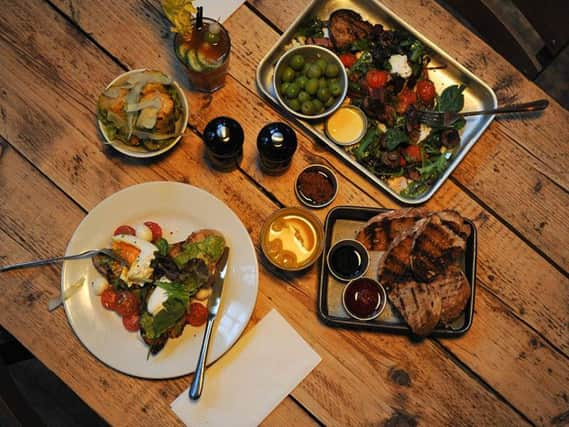Eating out slows in popularity for first time in four years


Sales at restaurants, cafes, bars and other eating out options are currently flat compared to last year, the first time since July 2016 that there has been no increase in value.
On average, consumers ate out three times fewer in the past 12 weeks than they did this time last year, according to the study by Kantar. Experts said changing eating habits are down to three years of political uncertainty and the possibility of economic downturn, with Brits becoming increasingly price conscious.
Advertisement
Hide AdAdvertisement
Hide AdEating out of home has become increasingly popular in recent years as consumers turn to cafes and restaurants to provide snacks and breakfast as well as main meals and lunchtime sandwiches.
Figures released by Food Standards Scotland earlier this year revealed that an estimated 25 per cent of the calories consumed in Scotland come from foods eaten outside of the home. FSS said Scots made around 960 million visits to “out of home” outlets in 2018, equating to each person, on average, visiting four times and spending £20 each week.
Lucy Chapman, strategic insight director at Kantar, said: “Three years of political and economic uncertainty have taken their toll on the British public.
“Their behaviours and priorities have understandably changed and stalling market growth shows that things have come to a head. Meals out of home motivated by health reasons – often considered to be more expensive – have fallen by one per cent in the past 12 weeks as price becomes more important for consumers. This mirrors the patterns seen after the 2008 financial crash and are likely to continue, so the sector needs to tap into this shifting mood to stay relevant in the current market.”
Treats stay popular
While the frequency of eating out might be down in the current climate, people are more likely to have an occasional indulgence and meals bought as a treat or reward were up 6.6 per cent in the past 12 weeks.
Ms Chapman added: “Consumers always want to have the option to treat themselves, regardless of budget. However, we know that they’re also trading down – so those outlets at the lower end of the scale need to make sure they’re offering something that feels special.
“This is especially true for the big high street chains that are showing signs of struggle, and who must not rely on the same menu for months at a time if they want to get people through the door – particularly as we head towards Christmas, which tends to be a quieter time for the sector.”